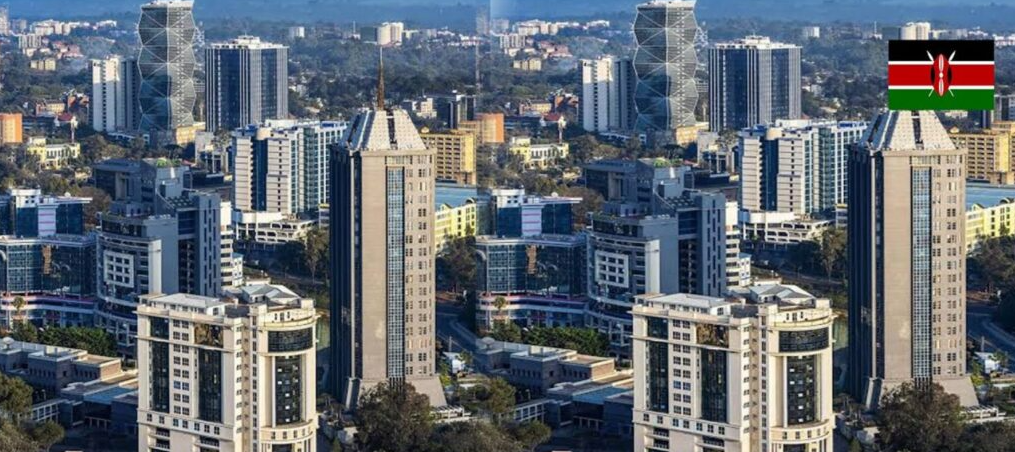Introduction
Nairobi, the vibrant capital city of Kenya, stands as a beacon of business innovation and opportunity. Known for its dynamic economy and diverse sectors, the city offers a fertile ground for entrepreneurs, investors, and established businesses alike. This article delves into Nairobi’s burgeoning business scene, highlighting prominent players, emerging trends, and key opportunities for growth. Whether you’re a local entrepreneur or an international investor, Nairobi’s business landscape holds promising prospects that are worth exploring.
1. Nairobi’s Economic Growth
Nairobi’s economic growth has been nothing short of impressive. Over the past decade, the city has transformed into a regional economic hub, attracting multinational companies and startups from various industries. According to recent reports, Nairobi’s GDP growth rate has consistently outpaced the national average, driven by robust sectors such as technology, finance, manufacturing, and tourism.
2. Key Business Sectors in Nairobi
- Technology and Innovation: Nairobi has earned the nickname “Silicon Savannah” due to its thriving tech ecosystem. The city is home to numerous tech hubs, incubators, and accelerators that foster innovation. Notable examples include iHub, Nairobi Garage, and M-Pesa’s headquarters. The rise of tech startups and advancements in fintech, e-commerce, and digital services underscore Nairobi’s role as a technology leader.
- Finance and Banking: As the financial capital of East Africa, Nairobi boasts a well-developed banking sector. Major banks such as Equity Bank, KCB, and Co-operative Bank have established a strong presence in the city. Nairobi also serves as the regional headquarters for several international financial institutions, making it a strategic location for financial services and investment.
- Manufacturing and Industry: The manufacturing sector remains a cornerstone of Nairobi’s economy. The city hosts various industrial zones and production facilities, including those focused on consumer goods, pharmaceuticals, and construction materials. This sector’s growth is crucial for job creation and economic stability.
- Tourism and Hospitality: Nairobi’s vibrant culture, historical landmarks, and proximity to national parks make it a prime destination for tourists. The city’s hospitality sector, encompassing hotels, restaurants, and tour operators, thrives on the influx of both domestic and international visitors. Notable establishments include luxury hotels like the Sarova Stanley and iconic landmarks such as Nairobi National Park.
3. Emerging Trends and Opportunities
- Green Business Practices: With increasing awareness of environmental issues, Nairobi is witnessing a surge in green businesses and sustainable practices. Companies are adopting eco-friendly technologies, reducing waste, and promoting renewable energy sources. This trend aligns with global sustainability goals and presents opportunities for businesses focused on green innovations.
- E-Commerce Growth: The rise of e-commerce has transformed retail in Nairobi. Online shopping platforms, delivery services, and digital payment solutions are experiencing rapid growth. This shift presents opportunities for entrepreneurs to enter the e-commerce space and cater to the evolving consumer preferences.
- Real Estate Development: Nairobi’s real estate sector is booming, driven by increased urbanization and population growth. The city is witnessing a surge in residential, commercial, and mixed-use developments. Investments in real estate offer attractive returns, particularly in emerging neighborhoods and commercial hubs.
4. Notable Businesses and Startups in Nairobi
- Safaricom: As Kenya’s leading telecommunications company, Safaricom has significantly impacted Nairobi’s business landscape. Its innovative services, including M-Pesa, have revolutionized mobile payments and financial inclusion.
- Jumia: Jumia is a prominent e-commerce platform in Nairobi, offering a wide range of products from electronics to fashion. Its success reflects the growing demand for online shopping and digital retail solutions.
- Twiga Foods: Twiga Foods is a startup addressing the agricultural supply chain challenges in Nairobi. By connecting farmers with retailers through technology, Twiga Foods is improving the efficiency of the food distribution network.
- KCB Bank: Kenya Commercial Bank (KCB) is a key player in Nairobi’s financial sector. With a robust network of branches and digital services, KCB supports individuals and businesses in achieving their financial goals.
5. How to Start a Business in Nairobi
Starting a business in Nairobi involves several steps, including:
- Market Research: Conduct thorough research to understand market demand, competition, and customer preferences.
- Business Plan: Develop a comprehensive business plan outlining your goals, target market, and financial projections.
- Registration: Register your business with the relevant authorities, including obtaining necessary licenses and permits.
- Financing: Explore funding options, such as loans, investors, or grants, to support your startup capital.
- Location: Choose a strategic location that aligns with your business needs and target audience.
- Networking: Build connections with local business communities, industry associations, and potential partners to enhance your business prospects.
FAQ
Q1: What are the top industries driving Nairobi’s economy?
A1: The top industries include technology and innovation, finance and banking, manufacturing, and tourism and hospitality.
Q2: How can I start a business in Nairobi?
A2: Start by conducting market research, developing a business plan, registering your business, securing financing, choosing a location, and networking with local communities.
Q3: What are some notable startups in Nairobi?
A3: Notable startups include Twiga Foods, Jumia, and several tech hubs like iHub and Nairobi Garage.
Q4: Is Nairobi a good place for international investors?
A4: Yes, Nairobi’s dynamic economy, strategic location, and growing sectors make it an attractive destination for international investors.
Q5: How is Nairobi addressing environmental sustainability?
A5: Nairobi is seeing an increase in green businesses, eco-friendly practices, and renewable energy adoption, aligning with global sustainability goals.










Leave a Reply